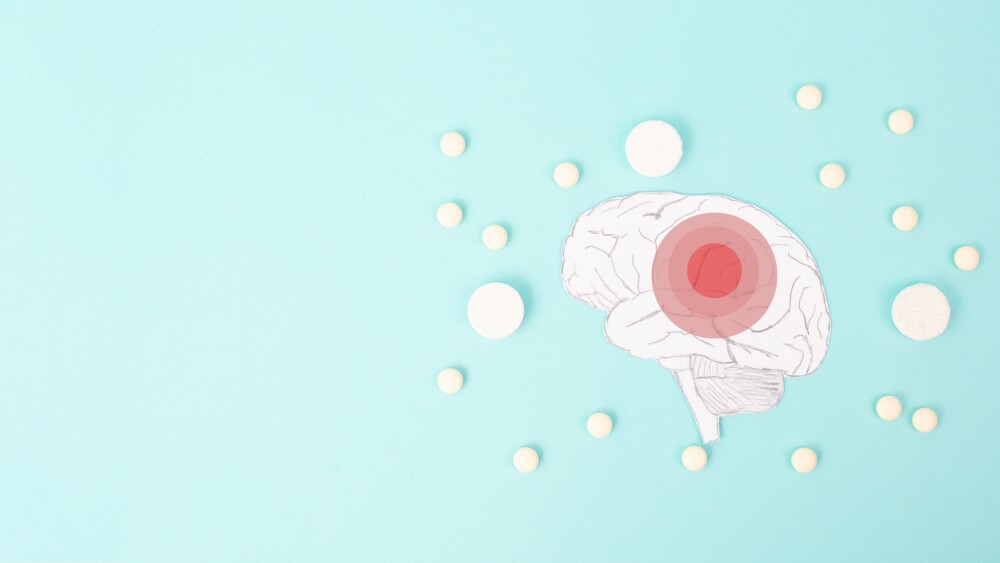The Neovacs’ presentation at this major conference highlights the interest of the international scientific community in the TNF-Kinoid for the treatment of Crohn’s disease.
“Last February, the scientific experts were very impressed by the results obtained with the TNF-Kinoid in Crohn’s disease; this drug candidate represents a major scientific innovation, aiming to become a highly efficacious new therapeutic approach for Crohn’s disease. We are very pleased to have been selected to present our results and are very excited by the interest of the key opinion leaders in gastroenterology in our TNF-Kinoid,” said Guy-Charles Fanneau De La Horie, Neovacs Chief Executive.
The TNF-Kinoid could be the next generation of treatment in Crohn’s disease.
The TNF-Kinoid represents a major innovation and a new alternative to anti-TNF monoclonal antibodies in treating chronic inflammatory diseases caused by the overexpression of the TNF- cytokine by the patient’s immune system. Monoclonal antibodies to TNF are today the most innovative therapy currently available, with total sales representing more than $20 billion in 2010. Nevertheless, many patients quickly appear to develop resistance towards the anti-TNF biologicals: after one year of treatment, some studies show that over 50% of patients had developed resistance to their treatment with a biological (see bibliography below).
The Phase I-II results with TNF-Kinoid presented at the European Crohn’s and Colitis Organization (ECCO) Congress were considered by opinion leaders to be very promising; with a Phase 2 trial ongoing, the TNF-Kinoid may become the next generation of therapeutic treatment in Crohn’s disease and also in rheumatoid arthritis.
On December 8, 2010, Professor Antoine Cortot, Head of the Gastroenterology Department at Lille Hospital said: “Despite progress in treating Crohn’s disease, both patients and doctors want to see new treatments. These first results with the TNF-Kinoid in 21 Crohn’s patients are promising; they now need to be confirmed in a larger number of patients.”
A reminder of the Phase 1-2 final results, TNF-K- 001:
The study was performed on 21 patients and the following observations were highlighted:
- A very good safety profile of the TNF-Kinoid : after more than 2.5 years of follow up for few patients, no major adverse effect has been reported. nor has any unusual infection been observed;
- A clear induction of an immune response to TNF : the production of anti-TNF antibodies has been detected in 17 out of the 21 patients ;
- A high remission rate observed : 1 patient in 2 is in clinical remission one month after dosing( according to CDAI < 150) ;
- The presence of antibody at Week 8 is associated with remission at week 12
- Patients with antibody to TNF at week 8 (14 out of the 21 in the study) had a more than 50% chance of being in clinical remission at Week 12. By contrast, patients without antibody at week 8 (7 out of 21) had a low probability (14%) of being in clinical remission at Week 12;
- A reduction in intestinal inflammation and evidence of mucosal healing: during the study, the evolution of calprotectin in the stools was also followed in ten patients. Calprotectin is a marker for intestinal inflammation. The results showed a normal calprotectin level in 7 of the ten patients at week 12, a sharp decline over baseline in most cases, indicative of a substantial reduction in inflammation of the intestinal mucosa. Further, colonoscopies undertaken in 9 patients showed mucosal healing in 6 of them.
About Crohn’s disease
- Crohn’s disease is a chronic inflammatory disorder that can affect any segment of the digestive tract. (1) It is most frequently diagnosed between the ages of 20 and 30, and it has a prevalence in France of approximately one person per thousand of population. Its incidence is estimated at 5 patients per 100,000 population per year. (1)
- Given its high incidence in young adults, the chronic and evolving natural course of the disease, the significant associated morbidity, and its impact on patient quality of life, Crohn’s represents a serious public health problem.(2) - Today, there is no cure for Crohn’s disease. The objectives of today’s therapies are sustained control of disease activity and providing patients with a satisfactory quality of life.
- Immunomodulators, and especially TNF inhibitors, which were a major advance in the fundamental treatment approach to severe disease manifestations, have clear limitations: Multiple studies have shown that, in long-term use, at least 20% of patients do not respond to TNF inhibitors(3) and, after only one year of use, only one patient in two is still a responder. (4, 5, 6)
- Given the limitations of current treatment options, Crohn’s disease remains an area of significant unmet medical need, and consequently many patients today do not have access to satisfactory therapy.
Bibliography
1. HAS. ALD 24. Guide médecin sur la maladie de Crohn. Mai 2008
2. PIRONT P et al. Revue de l’épidémiologie de la maladie de Crohn en Europe.Acta Endoscopica 2003;33(2) : 199-205.
3. LICHTIGER S. et al. The CHOICE trial: adalimumab demonstrates safety, fistula healing, improved quality of life and increased work productivity in patients with Crohn's disease who failed prior infliximab therapy.Aliment PharmacolTher 2010;32: 1228–39.
4. HANAUER SB. et al. Maintenance infliximab for Crohn's disease: the ACCENT I randomised trial. Lancet. 2002;359(9317):1541-9.
5. COLOMBEL JF et al. Adalimumab for maintenance of clinical response and remission in patients with Crohn's disease: the CHARM trial. Gastroenterology 2007.
6. SCHREIBER et al. Maintenance therapy with certolizumabpegol for Crohn's disease..NEJM 2007.
About Neovacs®
Neovacs® is a biotechnology company focused on an active immunotherapy technology platform (Kinoids™) with applications in autoimmune diseases and other chronic conditions. Neovacs® proprietary technology, protected by five patent families, aims to induce a polyclonal immune response from the patient’s own immune system targeting an over-expressed cytokine. Neovacs®' current portfolio consists of 3 drug candidates: TNF-Kinoid, IFNa-Kinoid and VEGF-Kinoid. The company’s lead immunotherapy program (TNF-Kinoid) targets TNF-mediated chronic inflammatory diseases. For TNF-Kinoid, a Phase I/II clinical trial in Crohn’s disease has been completed and Phase II trials in rheumatoid arthritis (RA) and Crohn’s Disease are ongoing. The RA clinical study is also the focus of collaboration with the French diagnostics company BMD, with the goal of developing theranostic tools for personalized care in RA. Patient recruitment is complete in a Phase I/II trial of Neovacs®’ second product candidate (IFNa -Kinoid, an immunotherapy targeting interferon alpha) in the treatment of lupus.
Neovacs® has recently announced a capital increase amounted to €2.25 million. Debioinnovation, part of the Swiss group Debiopharm has invested €1 million in Neovacs®’shares at €4 per share; In addition, two of Neovacs®’ historical institutional investors, Truffle Capital and OTC Asset Management, have decided to subscribe for a total of €1.25 million also at €4 per share.
For more information, visit the Neovacs® website at www.neovacs.com
About the TNF-Kinoid®
The TNF-Kinoid is a promising innovative approach to treat patients suffering from Crohn’s disease, by using the principle of active immunization: the TNF-Kinoid uses the patient’s own immune system to generate polyclonal antibodies against the over-expressed TNF cytokine.




